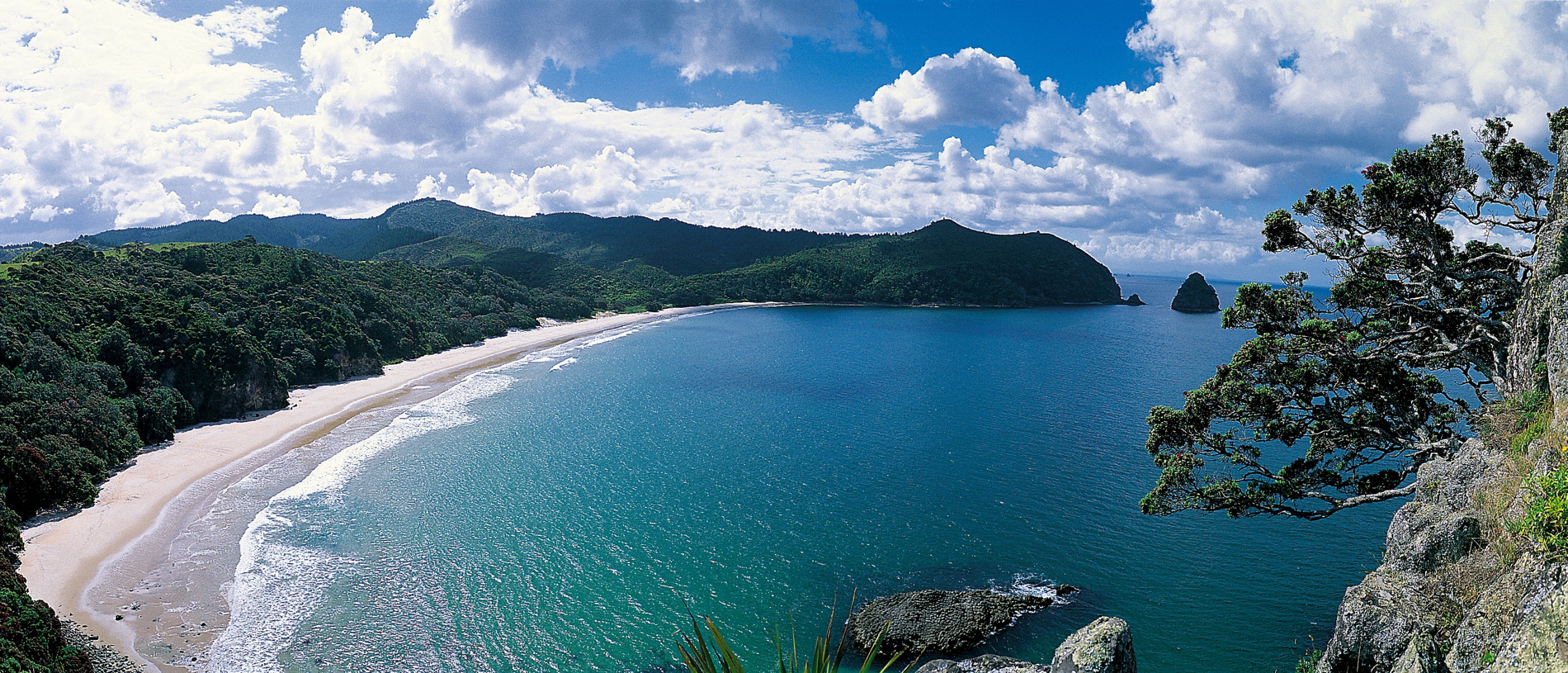
New Chums Beach: a slice of heaven
The east coast of the Coromandel Peninsula has more than its fair share of pretty beaches. Happily, there are still a few that have escaped the developers. New Chums is one.
Nearly a century after the goldminers, and decades after the bushmen who extracted kauri from the rainforest blanketing the rugged Coromandel Range, the hippies moved in.
It’s hard to explain to anyone who hasn’t been there exactly what it is that drew whole bouquets of Flower Children to the Coromandel in the 1960s and 1970s. At first glance, it’s pretty unpromising country to head for if you’re after an easy life off the fat of the land: rugged, stony, heavily forested and – on the western side, where Coromandel Township is sited – very tidal.
Perhaps it’s the stillness of the rainforest, the misty vistas of mountain, headland and sea that called the souls of the commune-founders hither. Perhaps it was the ready availability of cheap land and abundant pot clay. Perhaps it had to do with the camouflage offered by the bush to their crops, which in those days had more to do with pot than clay.
Whatever the reason, Coromandel – rivalled only by Nelson – was Hippy Central for New Zealand. And while most of the residents of the communes in the 1960s and 1970s spent the 1980s turning on and tuning in to the stock market, there are still real hippies living, feral and shy, in and around Coromandel.
The great thing about alternative lifestylers is that they are, to make a sweeping generalisation, creative and unconventional types. Coromandel is home to a thriving artistic community.
At Driving Creek, for example, just outside the township – named for its role in the kauri extraction days – the late potter Barry Brickell deployed creativity on an industrial scale. He built a narrow-gauge railway up into the hills from which he mined the clay he used in his pottery. The railway now takes fare-paying passengers on an unforgettable ride through the rainforest, studded with ceramic figures from Brickell’s studio and offering glimpses, now and then, out over Coromandel Harbour and the Hauraki Gulf beyond.
There are larger and smaller creative enterprises all along this coast, as ubiquitous as marine farms and secluded beaches. There’s also The Waterworks in Waiau – a well-maintained garden featuring an array of fanciful, water-powered gadgets that you’re encouraged to fool about with.
Up in the hills, on your way over to the east coast if you’re taking the main road, or a short detour if you’re going all the way to Cape Colville, there’s Castle Rock Winery in the Te Rerenga Valley, which specialises in fruit and vegetable wines. How hippy is that?